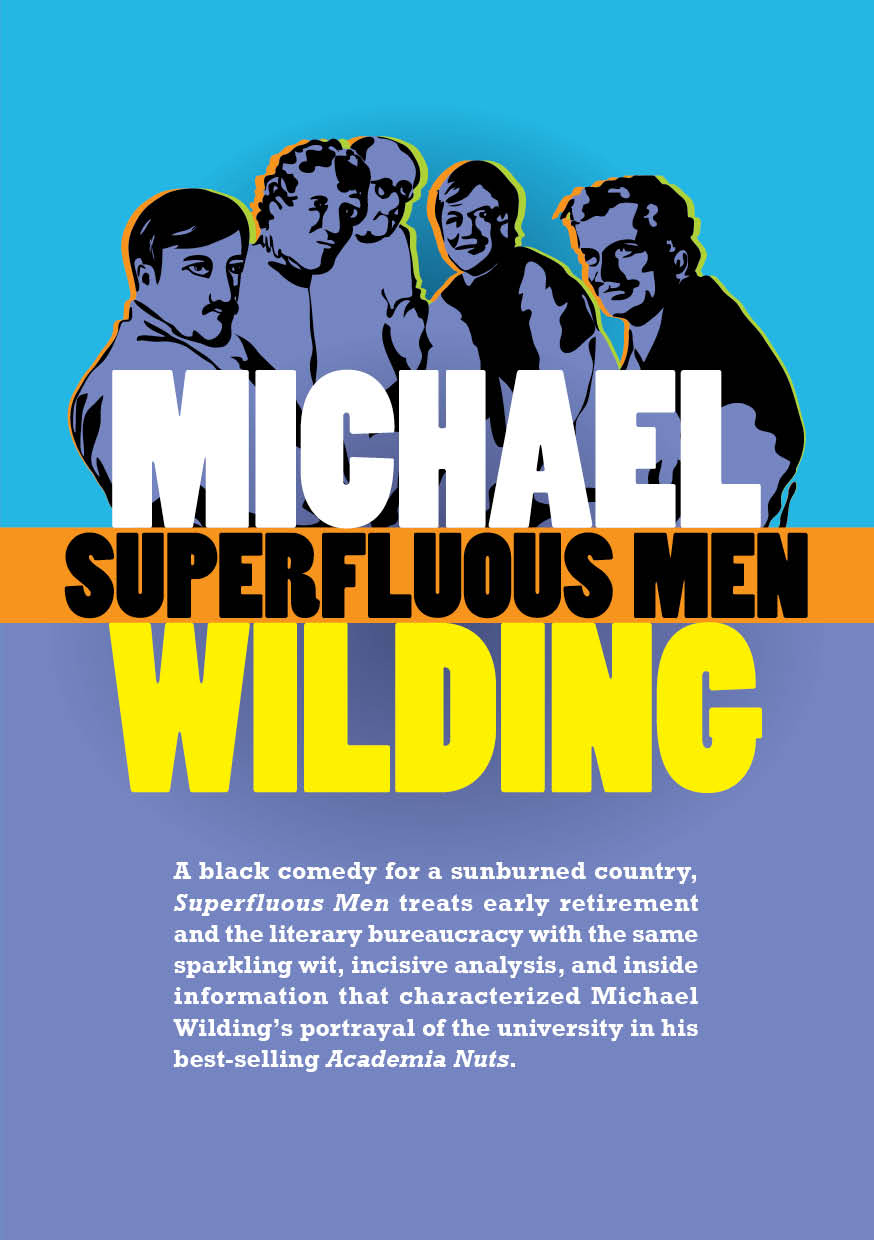
| current issue |
| archives |
| submissions |
| about us |
| contact us |
| competition |
sponsored by
|
Michael Wilding's Superfluous Men reviewed by Maria Arena |
Michael Wilding explores this question in his novel, Superfluous Men; the insightful follow-up to his successful Academia Nuts (2002, Wild & Woolly). Superfluous Men follows the tribulations of three career academics as they attempt to re-define themselves after taking early retirement from their university. In the course of discovering the joys associated with becoming ‘good old boys’ – heart attacks, dietary limitations, boredom, triviality, and the creeping shadow of persona non grata – Henry, Pawley and Dr Bee provide an acerbic commentary on the affectations of contemporary society. Through witty dialogue and comical interactions with various institutions and their bureaucracies, Wilding’s characters deride political correctness and its resultant censorship; warn against the erosion of personal freedom through the intrusion of government and technology; and lament the transformation of literary endeavour into a ‘creative industry’. This is a topic of particular interest to Henry who, as a writer, can see his profession being overrun by pseudo-writers; those people who talk about writing, listen to writer’s talk about writing, or learn about writing through workshopping but rarely produce (in Henry’s opinion) writing of literary merit. The conversations between the three men held over long lunches, supplemented by the arch commentary of Wilding’s narrator, are amusing yet disturbing in their reflection of modern life. If there is a criticism to be made of Superfluous Men, it is the ease with which Henry and Pawley consign their marriages and long-time partners to the ‘dustbin of history’. The characters, after agonising over their physical, psychological and financial well-being, give barely a thought to the loss of their primary intimate relationships. This seems unrealistic, as personal relationships also significantly contribute to the construction of identity and their loss is usually distressing. Yet, perhaps the trivialisation of these relationships serves the novel’s underlying premise of basing identity on the self rather than on the institutions society thrusts upon us, including marriage; for eventually all such structures are stripped away and, like Henry, Pawley and Dr Bee, all we are left with is ourselves. Michael Wilding’s novel, Superfluous Men, is published by Arcadia and has a recommended retail price of $29.95. *** About the Author Maria Arena is the author of Mira Falling. She lectures in creative writing at the University of the Sunshine Coast, where she completed her Doctorate of Creative Arts. Maria recently launched her business, La Vie Creativity (www.laviecreativity.com.au), which assists writers through a tutoring, mentoring and editing service. |

 How often upon meeting someone for the first time have you encountered, in one variation or another, the question, ‘So, what line of work are you in?’ It is a question indicative of a society that perceives what we do as the definition of who we are. The activities we undertake, particularly paid employment, allow us demonstrate how we ‘fit’ into our community and the level of our economic value to society. This fitting in is especially important for men, who are socialised to define themselves by their ability to produce, procure, and provide. What happens, however, when that ability is lost due to the process of aging? How do men (and, increasingly, women) define themselves when the routines of employment are stripped away?
How often upon meeting someone for the first time have you encountered, in one variation or another, the question, ‘So, what line of work are you in?’ It is a question indicative of a society that perceives what we do as the definition of who we are. The activities we undertake, particularly paid employment, allow us demonstrate how we ‘fit’ into our community and the level of our economic value to society. This fitting in is especially important for men, who are socialised to define themselves by their ability to produce, procure, and provide. What happens, however, when that ability is lost due to the process of aging? How do men (and, increasingly, women) define themselves when the routines of employment are stripped away?